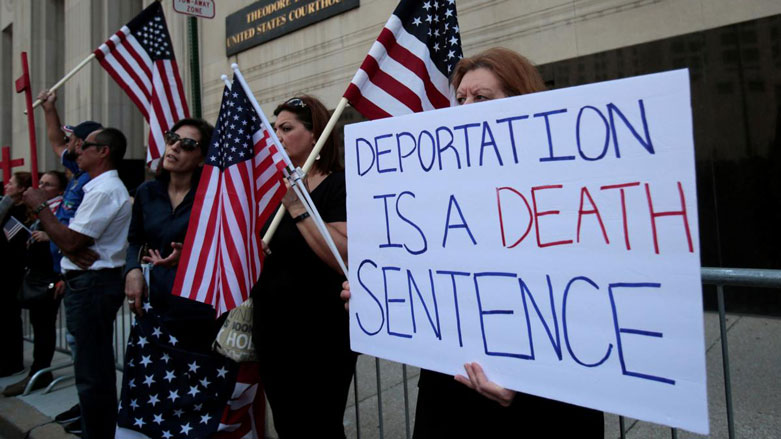Human Rights Watch: US deporting Iraqis without valid documents

ERBIL (Kurdistan 24) – A human rights watchdog said on Thursday that the United States government has deported at least 30 of a planned 1,400 Iraqis back to Iraq without valid identity documents, putting them at serious risk.
US Immigration and Customs Enforcement (ICE) "should halt all deportations of Iraqis until it can ensure that they won’t face detention and ill-treatment, and Iraq should ensure that all Iraqi deportees are given proper Iraqi identity documents before they return," said Lama Fakih, deputy Middle East and Northern Africa director at Human Rights Watch (HRW).
People without identification documents or travel papers, read a report posted on the HRW website, are likely to be seen with heightened suspicion and be detained if they are stopped at a checkpoint. "That puts them at risk of detention and torture, something pervasive in Iraq’s detention facilities."
HRW has documented instances of Iraqi security forces at checkpoints "detaining people on suspicion that they are affiliated with the Islamic State, sometimes merely because they are missing documentation. These detentions can last as long as a year without charge, trial, access to counsel, or communication with family members, in squalid conditions with interrogators often using torture as an interrogation method."
These abuses, points out are, are included in the US’ own annual 2017 human rights report on Iraq.
"If people want to return, Iraqi authorities should issue them full civil documentation to ensure their ability to return to and live in the country safely."
It has been Iraq's longstanding policy to oppose forced deportations of Iraqis, though consular staff in the US have been quietly facilitating the return of some who have refused to sign paperwork agreeing to return. They have done so by issuing deportees one-way travel documents valid only for the plane trip to Iraq, but which are invalidated upon arrival and are not recognized as identification by the Iraqi government.
According to what officials from the Iraqi Ministry of Foreign Affairs have said to those working on a class action suit in the US, Iraqi officials have done so because of pressure from the US State Department.
Shortly after US President Donald Trump’s "travel ban" was announced in January 2017 – which barred citizens of seven Muslim-majority countries, including Iraq, from entering the US – Iraq agreed to accept a small charter plane of deportees. The White House subsequently removed Iraq from the list.
Following Iraq’s agreement to accept deportees, ICE arrested and detained more than 300 Iraqis, some of whom had been convicted of crimes in the past, but others only had issues with their visa status.
They were ordered deported, although many of them have lived legally in the US for decades, have no family remaining in Iraq, or had come to the US at a young age and do not know Arabic or other languages spoken in Iraq.
A large number had been granted asylum in the United States because they had been able to prove to an immigration court that they faced a credible fear of persecution, should they return to Iraq.
One man who HRW spoke to, aged 26, said that before boarding his flight from Bahrain to Baghdad, the two ICE officers who had escorted him from the US demanded that he sign a document they would not let him read. "If you don’t sign the paperwork, we’re going to email the Iraqi government... In prison, they’re going to see a guy with tattoos like this and they’re going to rape you.”
After a federal judge determined there is evidence to suggest Immigration and Customs Enforcement (ICE) agents have been threatening Iraqi detainees at a Michigan jail and pressuring them to agree to deportations in August, Kurdistan 24 learned that the whereabouts of an Iraqi man sent to Baghdad remained unknown, weeks later.
